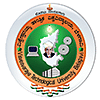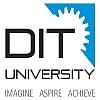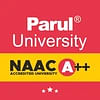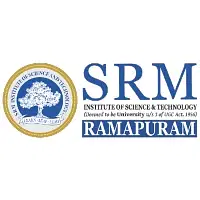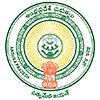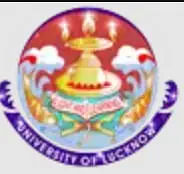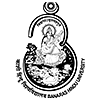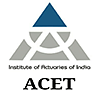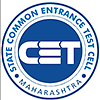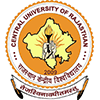
Table of Contents
The syllabus for VTU ULRAT 2023 was determined by the official authorities responsible for organizing the VTU ULRAT exam.
VTU ULRAT 2023 Syllabus for Ph.D & M.Sc
The syllabus for VTU ULRAT 2023 preparation for getting admission for Ph.D and M.Sc. courses were as given below. This syllabus was common to all streams of Engineering/ Physics/ Chemistry/ Mathematics/ Computer Application/ Geology/ Nanotechnology.
The common questions for all courses are as given below.
- Aptitude section
- Reading Comprehension
- Data Sufficiency & Data Interpretation
- Logical Reasoning
- Computer Awareness
Mathematics Section Syllabus
The topics and contents for the Mathematics section of the exam are as given below.
| Topics | Contents |
| Matrices |
|
| Differential Calculus |
|
| Integral Calculus |
|
| Vector Algebra and Complex Numbers |
|
| Applied Mathematics |
|
| Numerical Analysis |
|
| Statistics and Probability |
|
Discipline Oriented Section Syllabus
This section is for testing the existing knowledge of the candidate about his trade. The candidates will be asked domain specific questions. The topics and their contents from which the questions were asked for each discipline are as given below.
VTU ULRAT 2023 Syllabus for Ph.D & M.Sc in Civil Engineering Science
The topics and contents for Civil Engineering Science are as given below.
| Topics | Contents |
| Structural Analysis |
Structural Systems
Methods of Joints and Sections and Truss Analysis Strain Energy Arches and Cables |
| Fluid Mechanics |
Open Channel Flow
Water Hammer Dimensional Analysis Impact of Jets on Vanes Turbines Centrifugal Pumps |
| Concrete Technology |
Fresh Concrete and Hardened Concrete
Mix Design Special Concretes Non-destructive Testing of Concrete |
| Design of Concrete Structures |
Principles of Limit State Design
Serviceability Limits Effective Lengths Design Loads Anchorage of Bars Lateral Stability of Beams |
| Geotech |
Index Properties of Soil
Classification of Soils Soil Structures Compaction of Soil Consolidation of Soils Shear Strength of Soil |
| Transportation |
Highway Planning and Alignment
Design Principles Pavement Materials and Construction Wind Analysis and Site Selection for Airports |
| Irrigation Engineering |
Water Requirements of Crops
Canals, Diversion Works Gravity and Earthen Dams Steel Structures |
| Steel Structural Fasteners |
Tension – Compression – Flexure Members
Connections |
| Theory of Elasticity |
Plane Stresses and Plane Strain
Principal Stresses and Principal Strains Strain Displacement Relationship Equilibrium and Boundary Condition Generalized Hook’s Law |
VTU ULRAT 2023 Syllabus for Ph.D & M.Sc in Mechanical Engineering Science
The VTU ULRAT syllabus for Mechanical Engineering Science is as given below.
| Topics | Contents |
| Prime movers (I.C. Engine) | Classification of I. C Engines 2 Stroke & 4 Stroke Petrol & Diesel Engines Concept of Mechanical Efficiency BHP & IH Laws of Ist & IInd Thermodynamics, Zeroth Law Applications. |
| Refrigeration & Air-Conditioning | Properties – COP Unit of Refrigeration Refrigeration Effect Tonne Refrigeration |
| Manufacturing Process | Part of a Lathe Operation in a Lathe Types of Drilling Machine Operation a Drilling Machine Types of Milling Machines Operation on Milling Machines Grinding Machines, Bonding Materials, Grinding Terminology Type of Grinding Machine Soldering, Brazing & Welding Classification & Types Lubrication & Bearing Types. |
| Power Transmission & Mechatronics | Belt Drives Gear Drives Introduction to Mechanics- Open Loop & Closed Loop Control System Advantages & Disadvantages. |
| Heat Treatment of Metals | Anreding Normalizing Harding Tempering, Carburizing, Cyaniding, Nitriding and Flame Hardening Iron, Carbon Equilibrium Diagram. Composite Materials – Types of Martin Materials FRP & MMC Advantages & Applications. |
VTU ULRAT 2023 Syllabus for Ph.D & M.Sc in Electrical Engineering Sciences
The syllabus for Ph.D & M.Sc. in Electrical Engineering Sciences is as given below.
- Fundamentals & AC Circuits Network Theorems.
- Electrical Machines AC & DC, Transformers
- Diode Circuits – Amplifiers, OP – Amp Applications.
- Simplification of Boolean Expressions: Karnaugh Maps Combinational Logic Design.
- Sequential Logic Circuits: Flip Flops & Counters, Shift Registers.
- Time Response of Second Order Control Systems Nyquist Criteria – Bode Plots, Phase & Gain Margins.
- Thyristors: Choppers & Inverters.
- Field Theory: Electric & Magnetic Fields, Maxwell's Equations.
- Microprocessors: Architecture, Operation, Programming and Interfacing.
- Transducers
VTU ULRAT 2023 Syllabus for Ph.D & M.Sc in Computer Science Engineering
The VTU ULRAT 2023 syllabus for Computer Science Engineering is as given below.
- Discrete Mathematical Structures (Set Memory Fundamentals of Logic, Relations Functions)
- Computer Organization
- Data Structures using C (Stack, Recursion, Queues and Lists, Trees, Sorting, Searching)
- Operating Systems
- OOP with C++
- DBMS
- Analysis & Design of Algorithms
- Object Oriented Analysis & Design
- Software Engineering (Overview, Requirements of Engg, Software Design, Verification & Validation)
VTU ULRAT 2023 Syllabus for Ph.D & M.Sc in Silk/ Textile Technology
Some of the important topics and contents which are part of the VTU ULRAT syllabus for Silk/ Textile Technology are as given below.
| Topics | Contents |
| Introduction to Monomers | Polymers History of Polymers Classification of Polymers Introduction to Various Fibre Forming Polymers Application of Polymers Study of Various Methods of Polymerization viz Addition Chain, Co-ordination Polymerization. Study of Various Types of Initiators. Techniques of Polymerization. Copolymerisation. Nature of Polymeric Fluids. Flow of Polymeric Fluids Theology of Polymers – Derivation of Various Laws to Flow of Polymeric Fluids. Mechanical Behavior of Polymers- Tensile Behavior. Time-dependent Behaviour and Temperature Dependent Mechanical Behaviour. Thermal Analysis of Polymers – Glass Transition Temperature of Polymers. Determination of Glass Transition Temperature. Free Volume Concept. Time-Temperature Superposition in Polymers. Study of Thermal Characterization by DSC, DTA and TGA. |
| Introduction to Textiles |
Brief introduction to Textile Materials.
Brief History on the Origin of Textiles. Introduction to Textile Fibers, Basic Requirements of Textile Fibers. Geographical Distribution, Cultivation & Grading of Cotton, Wool, Silk, & Jute Fibers. Brief Study of Physical & Chemical Properties of Cotton, Wool, Silk & Blast Fibers. India’s Position of Natural Fibers in Global Scenario. |
| Introduction to Regenerated Fibers |
Chemistry and Physics of Viscose Rayon Production.
Production of Modified Viscose Rayon, Brief Outline on the Production of Acetate & Cuprammonium Rayon. Manufacture of Tencel, ‘Modal’ and ‘lyocell’ Fibre. |
| Modern Developments in the Blowroom Machinery | Evaluation of Blowroom Performance Calculation Regarding Blowroom Line. |
| Need of Blending |
Process Modification Required in Blowroom for Processing Various Blends like Polyester/ Cotton, Polyester/ Viscose
Silk and its Blends Types of Blending Operation and Blending Procedure. |
| Various Quality Control Studies in Blow Room | Like Alp Rejection Percentage Cleaning Efficiency within and between Lap Variations. |
| Carding |
Objects of Carding
Detailed Study of Working of Revolving Flat Card Card Clothing Autolevellers Setting of Different Parts and Effect of Changing the Setting on Sliver Quality Methods of Grinding Stripping Calculation of Production, Draft etc. in Carding Developments in Modern Carding such as Developments in Preceding Zone, Speeds, Efficiency etc. Developments in Post Carding Zone. Modern Cards, their Applications – Tandem Card, Various Quality Control Studies in Carding. |
| Winding | Objects and Principles of Winding Classification of Winding Machine. Derivation of Expression to Find Winding Speed and Surface Speed Cone Angle, Coil Angle and Angle of Wind and their Importance. Methods of Increasing Angle of Packages. Controlling of Ballooning Tension, Types of Balloon Breakers. Precision and Drum Winders. Yarn Clearers, Types and Setting Tensioning Devices User Classimat and its Usefulness in Selecting Optimum Clearing. Study of Automatic Winders viz. Auto Coner and Uniconer. Winding Faults and Remedies. Identification of Cones Material Handing, Measurement Handling Measurement of Package Density and their Efficiency. |
| Warping |
Objects and Systems of Warping.
Different Types of Modern Creels. Study of Modern, Friction Driven and Spindle Driven Beam Warping Machines. Study of Different Types of Sectional Warping Machines and their Salient Features. Special Warpers for Polyolefin Filament Yarns. Special Requirements of Yarn Preparatory for Shuttleless Weaving Machine. Production Calculation of all Machines. |
| Sizing |
Objects of Sizing.
Study of Ingredients Used for Size Preparation. Size Formulation Mixing Vessels Viz. Pressure Cookers, Injection Cookers, Homogenizers, Agitators and Storing Becks. Techniques of Sizing, Sizing of Natural, Man-made Fibres and their Blends. Size Pickup, Size Add-on, Salient Features of Modern Sizing Machines. Creels Sow Box, Drying Principles – Multicylinder Drying, Hot Air Drying, Radiation Drying. Concept of Single End Sizing. |
| Headstock |
Dry Splitting Comb, Drag Roll.
After Waxing, Cut Mark Motion, Beam Pressing, PIV and Friction Clutch. Controls in Sow Box – Stretch and its Control, Moisture Measurement and Temperature Control. Recent Trends in Sizing Viz. Foam Sizing Solvent Sizing. Hot Melt Sizing, High-Pressure Squeezing, Migrating Behaviour of Warp Ends, Dead Loss, Hard Waste. Production and Efficiency Calculations. Sizing Defects and Remedies. |
| Post Sizing Operations |
Drawing–in, Leasing, Knotting, Automatic Drawing in Machine
Chemicals and Auxiliaries used for Textile Wet Processing and their Functions Introduction to Shearing and Cropping. Objects of Shearing and Cropping. Objects of Singeing, Methods of Singeing by Various Singeing Machines, Precautions to be taken During Singeing, Latest Developments in Singeing. Objects of Desizing, Methods of Desizing, Continuous Desizing, Desizing of Cotton and other Blends. Latest Developments in Desizing. Objects of Scouring, Mechanism of Scouring, Methods of Scouring, Scouring of Natural Cellulose Fabrics, Degumming of Silk, Scouring of Wool and Jute, Scouring of Synthetic, Modifications Required to Scour Knitted Fabrics, Latest Developments in Scouring. Objects of Bleaching, Mechanism of Bleaching, Methods of Bleaching, Bleaching of Cellulose Fibres, Fibres, Bleaching of Natural Protein Fibres, Bleaching of Common Manufactured Fibres, Bleaching of Common Whitening, Optical Whitening Process for Common Fibres. Chemistry of Optical Whitening Agents. Objects of Mercerization, History and Developments of Mercerization, Physical and Chemical Changes in Cotton due to Mercerization, Various Factors Affecting Mercerization, Methods of Mercerization – Yarns and Fabrics, Machines Used for Mercerization, Slack Mercerization, Hot Mercerization, Faults in Mercerization and their Remedies, Test Methods for Mercerized Materials. Latest Developments in Mercerization. Characterization of Solid State Structure of Textile Fibres using X-rays IRS, NMR, UVS, SEM, TEM & DGC. Various Two Phase Models for Studying Two Phase and One Phase Physical Structure Fibres. Description of the Physical Structure of Cotton, Wool, Silk, PET, Nylon and Acrylic Fibres. |
| Moisture Relations | Concept of Moisture Equilibrium Moisture Hysteresis Moisture Regain Heat of Absorption Swelling of Textile Fibres. Effect of Moisture on Various Property of Fibres. |
| Mechanical Properties |
Stress and Strain Behaviour, Factors Affecting Tensile Behaviour, Structure and Tensile Property Correlation, Elastic Recovery and Weaklink Effect.
Stress Relaxation, Creep, Factor Affecting Stress Relaxation, Dynamic Mechanical Properties and their Application. Flexural and Tensional Properties, Frictional Properties, Amontons Laws of Friction, Deviation of These Laws in Fibre Friction, Bowden and Tabors Theory of Friction. Optical Properties, Measurement of Birefringence, Luster. Importance of Optical Properties. |
| Electrical Properties | Electrical Resistance, Static Electricity, Dielectric Properties. Measurement of these Properties. |
| Thermal Properties |
Thermal Conductivity, Specific Heat, Thermal Conductivity and Thermal Expansion. Introduction to Synthetic Fibres.
|
| Production of Raw Materials for Synthetic Fibres |
Study of Production of PET by DMT & TPA Routes.
Study of Production of Polyamides Nylon-6 Effect of Various Parameters on Nylon-6 Production Study of Semi-continuous & Integrated Continuous Process for Production of Nylon-6 Production of Nylon-66. |
| Introduction to High-performance Fibres | Study of Production of Carbon, Boron, Silicon, Carbide, Alumina & Glass Fibres Study of Production of Aromatic Polyamides viz. Nomex, Kevlar, Technova. Concept of Liquid Crystal, Thermotropic & Leo Tropic Polymers & Fibres Study of Production of LDPE, HDPE, by GEL Spinning Technique Production and Properties of PBZT AND PBZO Fibres. |
VTU ULRAT 2023 Syllabus for Ph.D & M.Sc in Chemical Engineering
The syllabus for Chemical Engineering for courses in doctoral and postgraduate level are as given below.
| Topics | Contents |
| Process Calculations and Thermodynamics |
Laws of Conservation of Mass and Energy
Use of Tie Components Recycle, Bypass and Purge Calculations Degree of Freedom Analysis. First and Second Laws of Thermodynamics and their Applications Equations of State and Thermodynamic Properties of Real Systems Phase Equilibria Fugacity, Excess Properties and Correlations of Activity Coefficients Chemical Reaction Equilibria. |
| Momentum Transfer and Mechanical Operations |
Fluid Statics
Newtonian and Non-Newtonian Fluids Bernoulli Equation Macroscopic Friction Factors Energy Balance Dimensional Analysis Shell Balances Flow through Pipeline Systems Flow Meters, Pumps and Compressors Packed and Fluidized Beds Elementary Boundary Layer Theory Size Reduction and Size Separation Free and Hindered Settling Centrifuge and Cyclones Thickening and Classification Filtration, Mixing and Agitation Conveying of Solids. |
| Heat Transfer |
Conduction, Convection and Radiation
Heat Transfer Coefficients Steady and Unsteady Heat Conduction, Boiling, Condensation and Evaporation Types of Heat Exchangers and Evaporators and their Design. |
| Mass Transfer | Molecular Diffusion in Fluids Mass Transfer Coefficients Film, Penetration and Surface Renewal Theories Momentum, Heat and Mass Transfer Analogies Stagewise and Continuous Contacting and Stage Efficiencies HTU & NTU Concepts Design and Operation of Equipment for Distillation, Absorption, Leaching, Liquid-liquid Extraction, Crystallization, Drying, Humidification, Dehumidification and Adsorption. |
| Chemical Reaction Engineering |
Theories of Reaction Rates
Kinetics of Homogeneous Reactions, Interpretation of Kinetic Data, Single and Multiple Reactions in Ideal Reactors, Non-ideal Reactors Residence Time Non-isothermal Reactors Kinetics of Heterogeneous Catalytic Reactions Diffusion Effects in Catalysis. |
| Instrumentation and Process Control |
Measurement of Process Variables
Sensors, Transducers and their Dynamics, Dynamics of Simple Systems, Dynamics such as CSTRs Transfer Functions and Responses of Simple Systems Process Reaction Curve, Controller Modes (P, PI, and PID) Control Valves Analysis of Closed Loop Systems Including Stability, Frequency Response (including Bode plots) and Controller Tuning, Cascade, Feed Forward Control. |
| Plant Design and Economics |
Design and Sizing of Chemical Engineering Equipment Such as Compressors, Heat Exchangers, Multistage Contactors
Principles of Process Economics and Cost Estimation including Total Annualized Cost, Cost Indexes, Rate of Return, Payback Period, Discounted Cash Flow, Optimization in Design. |
| Chemical Technology |
Inorganic Chemical Industries
Sulfuric Acid, NaOH, Fertilizers (Ammonia, Urea, SSP and TSP) Natural Products Industries (Pulp and Paper, Sugar, Oil, and Fats) Petroleum Refining and Petrochemicals Polymerization Industries Polyethylene, Polypropylene, PVC and Polyester Synthetic Fibers. |
VTU ULRAT 2023 Syllabus for Ph.D & M.Sc in Biotechnology
The VTU ULRAT syllabus for Ph.D and M.Sc. in Biotechnology is as follows.
| Topics | Contents |
| Basics Of Unit Operations |
Basics of Sedimentation, Setting, Filtration, Size Reduction, and Mixing.
Basic Modes of Heat Transfer, Uni-layer, Multi-layer, and Steady State Conduction. Principles of Diffusion, Distillation, Drying, Evaporation, Extraction, Adsorption and Iron-exchange Operations. |
| Fundamental Of Momentum Transfer | Euler Equation, Momentum Balance Flow through Circular and Non-circular Sections Hagen-Poiseulles Equations Losses through Pipe and Fittings, Turbulent Flow, and Friction Factor. |
| Basic Biochemistry |
Structure and Properties of Mono, Di, and Polysaccharides
Structure and Properties of Fatty Acids, Neutral Fats Phospholipids, Glycolipids and Steroids Structure and Properties of Amino Acids, Peptides, and Proteins. Biologically Important Peptides. Structure and Properties of Purines, Pyrimidines, Nucleosides, Nucleotides, Ribonucleic Acids, Nucleoprotein Complexes. |
| Fundamentals of Cell Structure And Function |
Eukaryotic and Prokaryotic Cells
Plant and Animal Cells Types of Cell Functions Cell Division, Mitosis and Meiosis. Formal Structure in the Cytoplasm, Nucleus, Mitochondria, Ribosome, Golgi Bodies, Lysosomes. Endoplasmic Reticulum, Peroxisomes, Chloroplast and Vacuoles. Cell to Cell Integration, Cell Locomotion (Ameoboid Flagella, Cillar). Muscle and Nerve Cell. Structure and Functioning of Endocrine Cells including the Neuro-Secretary Cell. |
| Basics Of Biophysical And Biochemical Techniques |
Rayleigh Scattering
Ultra-centrifugation Viscometry, Crystallization X-ray Crystallography Neutron Diffraction, NMR Spectroscopy Electron Microscopy STM, AFM, Luminescence Fluorimeter, Falme, Photometry Optical Activity, CD, UV, IR, Laser Raman and ESR, EPR. Calorimetry, DSC, Spectrophotometry, Mass Spectrometry, LC-MS, MALDI-TOF, Chromatography, Electrophoresis. |
| Fundamentals Of Thermodynamics |
System, Surrounding and Process
Closed and Open System State and Properties Intensive & Extensive Properties State and Path Functions Equilibrium State and Phase Rule Zeroth Law of Thermodynamics Heat Reservoir and Heat Engines Reversible and Irreversible Processes. General Statement of First Law of Therodynamics, First Law for Cyclic Process, Non-Flow Process, Flow Process, Heat Capacity. |
| Basic Genetics and Genetic Engineering |
Nature of Genetic Material
DNA Replication Mendelian Laws of Inheritance Monohybrid and Dihybrid Inheritance Law of Segregation and Independent Assortment Gene Interactions, Supplementary Genes, Complementary Genes, Epistasis. Identification of Genetic Material, Classical Experiments- Hershey & Chase, Avery McLeod etc. Multiple Alleles and Groups Antigens. Role of Genes within Cells, Genetic Code, Genetic Elements that Control Gene Expression Methods of Creating Recombinant DNA Molecules Vectors in Recombinant DNA Technology, Biology and Salient Features of Vectors, Types of Vectors-plasmids, Cosmids, Phages and Viruses. Gene Transfer Techniques, Genetic Engineering of Plants and Animals, Structure and Functions of T-DNA in the Expression of Genes, Ti Plasmid-mediated Gene Transfer. |
| Introductory Bioinformatics Databases |
Sequence Database
Structure Database Medical Databases. Sequence Alignment and Database Searches Optional Alignment Database Similarity Searching, FASTA, BLAST. Aspects of Multiple Sequence Alignment. Phylogenetic Analysis: Tree- Building Methods, Evaluating Trees and Data. Predictive Methods for Detecting Functional Sites in the DNA. Predictive Methods for Secondary Structure, Tertiary folds from Protein Sequences. Plasmid Mapping and Primer Design. |
| Bioprocess Principles |
Concept of Mole and Molecule, Composition of Mixtures of Solids, Liquids and Gases.
Composition of Mixtures and Solutions- Percentage by Weight, Mole and Volume Normality, Morality, Molality, and ppm, pH and pK Buffer Calculations. Outline of an Integrated Bioprocess and the Various (upstream and downstream) Unit Operations Involved in Bioprocesses Generalized Process Flow Sheets. Process Flow Sheet and Unit Operations in Chemical and Bioprocess Industries General Material Balance Equation for Steady and Unsteady States. Basic Concepts of Energy Balance. Couples Reactions and Energy Rise Compounds Reaction Stoichiometry Criteria of Biochemical Reaction Equilibrium Equilibrium Constant and Standard Free Energy Change Effect of Temperature Pressure on Equilibrium Constants and Other Factors Affecting Equilibrium Conversion, Liquid Phase Reactions, Heterogeneous Bioreaction Equilibria, Phase Rule for Reacting Systems. |
VTU ULRAT 2023 Syllabus for Ph.D & M.Sc in Chemistry
The syllabus for VTU ULRAT Ph.D and M.Sc. in Chemistry are as follows.
| Topics | Contents |
| Periodic Properties | Atomic Radii Ionization Energy in Groups and Periods Electron Affinity Chemical Bonding |
| Organic Chemistry |
Classification and Nomenclature of Organic Compounds.
Electronic Effects and Reactive Intermediates Principles of Purification of Organic Compounds Halogens Cycloalkanes Aromatic Hydrocarbons Elimination Reaction Organo-metallic Compounds Alcohols ,Phenols Carboxyl Compounds Carboxylic Acid Hydroxy Acids Amines Diazonium Compounds. Active Methyl Compounds Carbohydrates Stereochemistry Amino Acids Peptides Proteins, Oils and Fats Waxes, Dyes, Terpenes. Drugs, Hormones and Vitamins. |
| Inorganic Chemistry |
Molecular Orbital Theory
General Characteristics of s- block and p- block Elements Gravimetry Statistical Analysis of Results of Quantitative Measurements (Errors – Accuracy – Precession etc). Nobel Gases Non-aqueous Solvents Ion Exchange Metallurgy Gaseous Fuels. |
| Physical Chemistry | Liquid Mixtures Properties of Liquid Mixtures Colligative Properties Chemical Kinetics Colloids Emulsions Crystallography. Electrochemistry Hydrolysis of Salts Ionic Equilibria. Distribution Law. |
| Nuclear Chemistry | Fundamental Properties of Nucleons Isotopes Nuclear Stability Binding Energy Nuclear Models Fission and Fusion Nuclear Transmutation Radioactivity Nuclear Reactors Accelerators Application of Nuclear Chemistry. |
| Thermodynamics | Gas Laws Thermodynamic Processes State Function Laws of Thermodynamics Heat Engine Free Energy Entropy Phase Equilibria. |
VTU ULRAT 2023 Syllabus for Ph.D & M.Sc in Physics
The VTU ULRAT 2023 syllabus for Physics for Ph.D and M.Sc. are as follows.
| Topics | Contents |
| Mechanics and Properties of Matter | Frames of Reference Rigid Body Dynamics Moment of Inertia Laws of Conservation. Elasticity, Viscosity and Surface Tension. |
| Heat and Thermodynamics | Kinetic Theory Laws of Radiation Thermodynamics Liquification of Gases Entropy Heat Engines and Refrigeration. Thermal Conductivity. |
| Waves Acoustics | Progressive Waves Superposition Doppler Effect Acoustics of Buildings Fourier Transforms Ultrasonics. |
| Optics | Theories of Light Interference Diffraction Polarisation Optical Instruments Resolving Power. Laser - Production, Properties and Applications. |
| Electricity and Magnetism | Electrostatics Galvanometers - Measuring Instruments Alternating and Direct Current Generation and Analysis – Thermoelectricity – Electromagnetism. Atomic and Molecular Physics Electron: Atomic Models , Atomic Spectra, Molecular Spectra and Related Measurements. Zeeman Effect. X- Rays - Crystallography. |
| Nuclear Physics | Nucleus Nuclear Models Mass Spectrographs Radioactivity Accelerators Nuclear Detectors Nuclear Reactions Cosmic Ray Mossbauer Effect Magnetic Resonance - Applications Elementary Particles. |
| Solid State Physics | Relativity Special and General Theories of Relativity Statistical Physics Specific Heats of Solids Band Theory of Solids Classification of Solids Electrical Conductivity in Solids Dielectric and Magnetic Properties Specific Heats of Solids Semiconductors - Applications Semiconductor Devices Transistors, Amplifiers, Oscillators, Digital Electronics Superconductivity. |
| Quantum Physics | Failure of Classical Physics Duality Wave Function Schrodinger Wave Equations. Solutions Eigen Values. |
| Recent Trends in Physics | Liquid Crystals Optical Fibers Smart Materials NanoMaterials. |
VTU ULRAT 2023 Syllabus for Ph.D & M.Sc in Business Administration
The modules and contents for VTU ULRAT syllabus in Business Administration are as given below.
| Modules | Contents |
| Management | Definition, Nature, Purpose and Functions. Principles of Management. Planning: Nature-type-steps Organizing: Organization Structure Span of Management Centralization, Decentralization. Staffing: Overview. Directing and Controlling MBO. |
| Organization Behaviour | Nature: Learning, Personality: Definition-Traits-Determinants. Perception; Meaning, Factors Influencing Perception, and Decision making. |
| Marketing Management | Meaning Importance Marketing Management Process Marketing Mix. |
| Human Resource Management | Definition, Nature Scope-Managerial and Operative Functions of HRM. Objections of HRM. |
| Financial Management | Definition, Scope, Functions, Objectives, Time Value of Money. Latest Management Concepts in all the Above Modules. |
VTU ULRAT 2023 Syllabus for Ph.D & M.Sc in Polymer Science and Technology
The syllabus for Ph.D and M.Sc. in Polymer Science and Technology is as given below.
| Topics | Contents |
| Fundamentals of Polymer Science | Definition to Polymer/ Macromolecules, Copolymer, Blends, Composites, Fibres, etc. Classification of Polymers, Functionality of Monomers. Explain the terms Crystallinity, Amorphous, Tacticity, Stereoregularity, Tg/Tm, Configuration/ Conformation. Chemistry and Mechanism of Polymerization |
| Methods of Polymerization | Bulk, Solution, Suspension, Emulsion, Solid Phase, Gas Phase Polymerizations |
| Molecular Weight and Size | Concept of Molecular Weights Number Average, Weight Average, Viscosity Average and Z Average Molecular Weight - Definitions and Mathematical Expression Molecular Weight Distribution (MWD) & Its Importance and Polydispersity. |
| Polymer Properties | Approach and the Concept of Chemical Structure of Polymers. |
| Polymer Testing/ Characterization | Density, Bulk Density, UTM, Stress-strain Curves (Types) Definition for Tensile Modulus, Impact Strength Thermal Methods-DSC and TGA (Basics), the Melt Viscosity (MFI) |
| Chemistry, Properties and Uses of Some Polymers | Types of Polyethylene (LDPE & HDPE), Nylons, PP, PS, PAN, PMMA, PET, PC, NR, SBR, Epoxies. |
VTU ULRAT 2023 Syllabus for Ph.D & M.Sc in Architecture
The VTU ULRAT 2023 syllabus for Ph.D and M.Sc in Architecture is as given below.
| Topics | Contents |
| City Planning | Historical Development of City Planning Principles of City Planning, New Towns, Survey Methods Site Planning and Planning Regulations and Building By-Laws. |
| Housing | Concept of Shelter Housing Design and Policies Role of Government Agencies Finance and Management. |
| Landscape Design | Principles of Landscape Design Landscape Elements, Materials, Planning Design |
| Visual and Urban Design | Principles of Visual Composition Proportion, Scale, Rhythm, Symmetry, Asymmetry Harmony The Balance of Form and Color, Sense of Place and Space The Division of Space, Focal Point Vista, Visual Survey. History of Architecture: Indian - Indus Valley, Vedic, Buddhist, Indo-Aryan, Dravidian and Mughal Periods European - Egyptian, Greek, Roman, Medieval, and Renaissance Periods. |
| Development of Contemporary Architecture | Development and Impact on Society Since Industrial Revolution Influence of Modern Art on Architecture Works of National and International Architects Post-Modernism in Architecture. |
| Planning Theory | Planning Process Comprehet1sivc Planning Land Use and Density in Residential and Non-residential Areas Central Place Theory Rank-size Rule Settlement Pattern Land Utilization, and District Level Planning. |
| Techniques of Planning | Application of Remote Sensing Techniques in Urban and Regional Planning Planning Surveys, Methods of Preparation of Urban and Regional Development Plans. Structure Plans, Strategy Plans etc. and Site Planning Principles and Design. |
| Introduction to Research | Science and Common Sense. Four Methods of Knowing, Science and its Functions. Scientific Explanation and Theory, Scientific Research- a Definition. Problems and Hypotheses, Problem Values and Definitions. Generality and Specific Problems and Hypotheses. |
